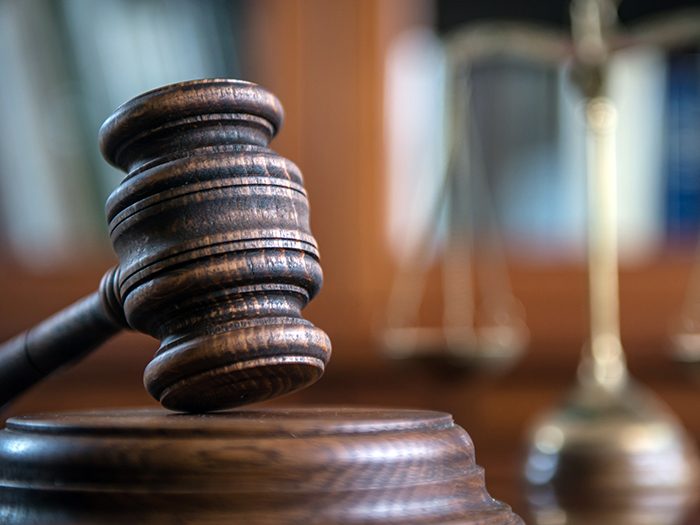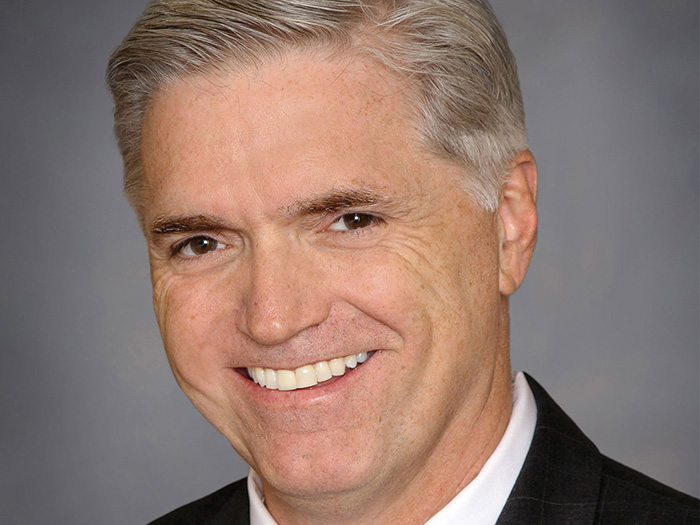Legal Roundup: Social Media Giants Face Bias Suits, Cop Gets Another Chance at Workers’ Comp and More

Facebook, Google, Twitter, and Apple Face Conservative Bias Lawsuit
The case: A lawsuit filed by YouTube personality Laura Loomer and non-profit Freedom Watch accused major tech companies of suppressing Conservative viewpoints online, according to the Associated Press.
The suit, which named Google, Facebook, Twitter and Apple as defendants, was dismissed in U.S. District Court — then came up for appeal. Back in March 2019, a District Court Judge rejected claims of discrimination and said that internet sites are not a “place of public accommodation” under the D.C. Human Rights Act.
Scorecard: In late March, an appeals court upheld the dismissal of the case.
The AP reports: “A three-judge panel from the U.S. Court of Appeals for the District of Columbia Circuit ruled that Laura Loomer and Freedom Watch Inc. don’t have any viable claims that the companies violated their First Amendment free speech rights.”
Takeaway: The fight against perceived political bias by social media companies shows no signs of slowing down.
Late last week, President Trump signed an executive order aimed at removing legal protections for social media and internet companies for defamatory messages appearing on their platforms. It came after Twitter fact-checked two Trump tweets about mail-in voting.
Meanwhile, Facebook CEO Mark Zuckerberg is taking a different approach. He says “Facebook shouldn’t be the arbiter of truth of everything that people say online.”
Police Officer With Pre-Existing Hearing Loss Gets Another Chance at Workers’ Comp
The case: Jared Spangler, a former police officer in Henderson, Nev. sued the city after being denied workers’ compensation for hearing loss.
Spangler was hired in 2003 and had “what court records described as ‘some level of hearing loss,’ ” according to the Las Vegas Review-Journal.
“He initially tried to file a workers’ compensation claim three years later, but it was denied. As his condition worsened through a decade of the loud blasts of sirens, gunshots and noise in his radio earpiece, he filed a second petition, which also was rejected. He appealed that denial, and his case made its way before the appellate court.”
Scorecard: The Nevada Court of Appeals awarded him another chance at compensation.
Judge Jerry Tao wrote: “Even if the condition was originally genetically inherited and always present since birth in some limited form, after later becoming employed, the employee may nonetheless be entitled to compensation if his or her current employment triggered an occupational disease that aggravated the original condition beyond its natural progression,” according to the Las Vegas Review-Journal.
Takeaway: The decision could set the tone for workers comp and pre-existing conditions in Nevada going forward.
Music Festival Sued for Refusing Refunds
The case: Samuel Hernandez and Richard Montoure have sued organizers of the Ultra Music Festival claiming they weren’t able to get refunds for the March 20 event.
The festival in Miami could not go on as planned due to social distancing measures enacted to fight the spread of COVID-19.
The Hot Springs Sentinel-Record reports: “Following negotiations with the city of Miami, Ultra organizers announced that they were postponing the festival until March 2021, the lawsuit said.
Rather than offering refunds for the 2020 festival, organizers offered to honor the tickets for the 2021 or 2022 events, even though the events haven’t been confirmed.
The lawsuit claims that Ultra is keeping the money rather than offering refunds and that is unjust and inequitable.
Although the company’s terms and conditions state it reserves the right not to offer refunds if the event is postponed, the lawsuit claims the terms are unenforceable and should be voided.”
Scorecard: The case has just recently been filed and has not come to a resolution.
Takeaway: Is the event “postponed” or “cancelled?” That seems to be the key to this case — and similar cases regarding refunds for events. Major League Baseball and its ticket partners were recently sued for refusing refunds for games that appear highly unlikely to actually take place.
The plaintiffs in the music festival case are shooting for class-action status to obtain refunds for other ticket holders. &










